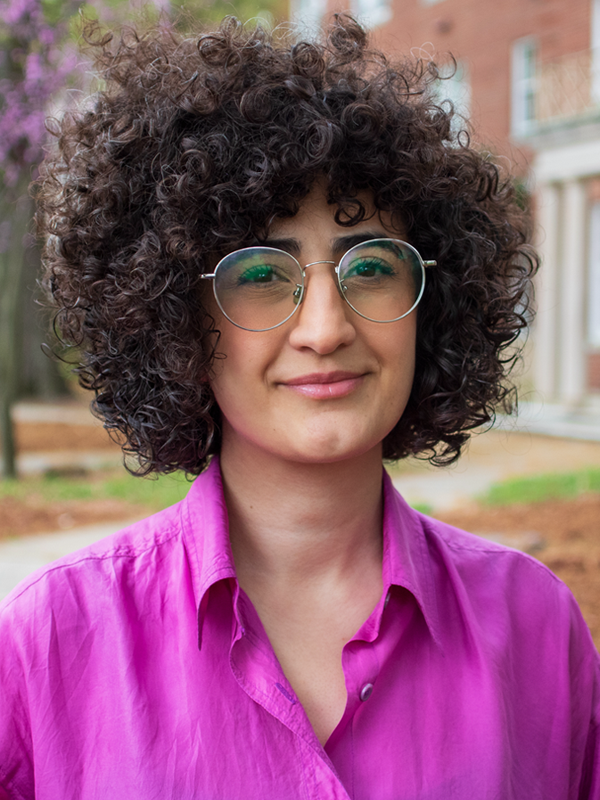Paniz Musawi Natanzi is an interdisciplinary scholar of feminist and anti-colonial theory, visual culture, global politics, and war. Much of her empirical and theoretical work focuses on labor, knowledge, and migration in Afghanistan and its global political entanglements, with emphasis on Iran, Pakistan and Germany. During her fellowship year, she is affiliated with the Wolf Humanities Center and the South Asia Studies Department and will work on her book manuscript with the tentative title The War Mode of Production: Masculinities, Artistic Labor, and Race in Afghanistan. In the spring semester, she will teach an undergraduate course on "Masculinities and Politics in Global Perspective." For her doctoral dissertation, she did research in urban Afghanistan, Iran and Pakistan. After her Ph.D. (SOAS, University of London), she worked as a consultant in policy fields relating to gender, migration and labor, mental health, and prisons in Afghanistan. She was a Postdoctoral Associate at the Duke University Middle East Studies Center (DUMESC) in 2023- 2024 and in the 2022-2023 theme year programming in "Feminist Theory and Imperialism" in Gender, Sexuality and Feminist Studies at Duke University.
Paniz Musawi Natanzi
Andrew W. Mellon Postdoctoral Fellow in the Humanities
2024—2025 Forum on Keywords
Paniz Musawi Natanzi
Gender Studies, Political Studies
School of Oriental and African Studies, University of London, 2020
The War Mode of Production: Masculinities, Artistic Labor, and Race in Afghanistan
During the U.S.-led NATO war in Afghanistan (2001-2021), cis men served in the civil-military infrastructure of the war, sought work or could not work, worked precariously as day laborers and vendors, or owned small businesses. Simultaneously, men also facilitated places where art is taught, practiced and exhibited. My book project, The War Mode of Art Production, places cis men’s knowledge- and income-generating labor within the multiple military, political, economic and cultural infrastructures that reorganized, overwrote and hierarchized ways of knowing visual arts in Afghanistan in the early 21st century. Drawing on ten years of empirical work alongside artists, this book project refers to artistic labor as an entry point to offer new ways of theorizing masculinities and racializing processes in labor relations structured by capitalism, imperialism and war.



